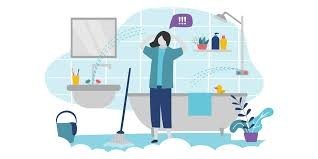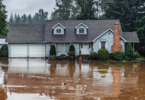The Most Common Insurance Claims (and How to Avoid Them)
Insurance is an essential safeguard for life’s unexpected moments, but it’s not just about having coverage—it’s also about minimizing the chances of needing to use it. While claims are sometimes inevitable, many can be prevented with a little planning and forethought. Here, we explore the most common types of insurance claims and provide tips on how you can reduce the likelihood of experiencing them.
1. Water Damage Claims
Water damage is one of the most common and costly insurance claims. It can result from various sources, including burst pipes, roof leaks, or overflowing appliances. These incidents can lead to extensive property damage, mold growth, and expensive repairs.
How to Avoid It:
- Inspect and Maintain Pipes: Regularly check your home’s pipes and plumbing for signs of corrosion or leaks, especially in older homes.
- Roof Inspections: Inspect your roof annually and repair any damaged or missing shingles to prevent leaks.
- Install Water Leak Detectors: These devices alert you to water leaks in real time, which can help you address minor issues before they become major ones.
2. Fire Damage Claims
Fires can be devastating, leading to extensive property loss and high insurance claims. Common causes of home fires include kitchen accidents, faulty wiring, and space heaters.
How to Avoid It:
- Install Smoke Alarms: Place smoke alarms on every floor and in every sleeping area, and test them monthly.
- Use Appliances Safely: Never leave cooking unattended, and avoid overloading electrical outlets.
- Maintain Heating Systems: Have your furnace and heating systems professionally inspected annually to ensure they’re in safe working order.
3. Theft and Burglary Claims
Burglaries not only result in financial loss but also emotional distress. Although insurance covers the cost of stolen items, it’s best to avoid theft altogether.
How to Avoid It:
- Install a Security System: A home security system with cameras and alarms can deter burglars and alert you to break-ins.
- Improve Exterior Lighting: Motion-activated outdoor lights can make it more difficult for burglars to approach unnoticed.
- Lock Doors and Windows: Many thefts occur through unlocked entry points, so ensure all doors and windows are secure, even when you’re home.
4. Liability Claims for Injuries on Your Property
If someone is injured on your property, they might file a liability claim against you. This could range from a guest slipping on an icy driveway to a child being injured on a trampoline in your backyard.
How to Avoid It:
- Clear Walkways and Driveways: Regularly remove ice, snow, and debris from paths to reduce the risk of slips and falls.
- Install Railings and Handrails: Ensure that stairs have secure railings and that all steps are in good repair.
- Use Proper Safety Measures for High-Risk Items: Pools, trampolines, and playsets should have safety features, such as fencing, netting, and non-slip surfaces, to reduce the risk of accidents.
5. Car Accidents and Vehicle Damage Claims
Car accidents are among the most common insurance claims and can range from minor fender benders to major collisions. In addition to accidents, damage from weather-related incidents, like hail or floods, also leads to claims.
How to Avoid It:
- Drive Defensively: Follow traffic laws, avoid distractions, and maintain a safe distance from other vehicles.
- Regular Vehicle Maintenance: Keep your car in top condition, checking tires, brakes, and lights regularly to reduce the risk of accidents.
- Park in Safe Areas: When possible, park your car in a garage or covered area to protect it from weather-related damage.
6. Wind and Storm Damage Claims
Severe weather, such as thunderstorms, hurricanes, and tornadoes, can lead to significant damage, often involving roofs, windows, and siding. These events are frequent causes of home insurance claims, especially in regions prone to extreme weather.
How to Avoid It:
- Reinforce Your Home: Invest in storm shutters, impact-resistant windows, and roof tie-downs to minimize storm damage.
- Trim Trees: Overhanging branches can break off during a storm and cause severe damage to your home, so keep trees pruned and away from the roof.
- Secure Outdoor Items: When a storm is forecast, move outdoor furniture, grills, and other loose items indoors to prevent them from causing damage.
7. Medical Expense Claims from Pet Injuries
Pets, especially dogs, can sometimes lead to unintentional injuries or accidents with guests, leading to medical expense claims.
How to Avoid It:
- Train Your Pets: Ensure your pets are well-trained and socialize them early to prevent aggressive behavior.
- Create Boundaries: If hosting a large gathering, consider putting pets in a separate room or yard to avoid accidents.
- Use Leashes or Gates: Keep pets contained in safe areas, especially around new guests or children who may not be accustomed to animals.
8. Identity Theft and Fraud Claims
Identity theft can lead to unauthorized transactions and severe financial issues, and some insurance policies now include identity theft protection.
How to Avoid It:
- Monitor Financial Statements: Regularly check your bank and credit card statements for any unauthorized transactions.
- Use Strong Passwords: Avoid using easily guessed passwords and consider two-factor authentication for added security.
- Shred Sensitive Documents: Dispose of financial statements and personal documents securely to prevent them from falling into the wrong hands.
9. Mold Damage Claims
Mold can develop in humid or poorly ventilated areas and is often a result of water damage. Many insurance policies have limited coverage for mold, making it an expensive issue if not prevented.
How to Avoid It:
- Control Humidity: Use dehumidifiers in damp areas, such as basements, and ensure adequate ventilation in kitchens and bathrooms.
- Fix Leaks Promptly: Address any leaks in plumbing, roofing, or windows as soon as they’re detected to prevent moisture buildup.
- Regularly Clean and Inspect: Check areas like basements, crawl spaces, and bathrooms for mold growth and clean with mold-inhibiting solutions as needed.
10. Appliance-Related Claims
Appliances like washing machines, dishwashers, and refrigerators can cause water or fire damage when they malfunction, leading to costly claims.
How to Avoid It:
- Perform Regular Maintenance: Check hoses, filters, and connections on appliances and replace worn-out parts.
- Turn Off When Not in Use: Unplug small appliances when they’re not in use, and consider turning off the water supply to washing machines if you’re away for extended periods.
- Avoid Overloading: Overloading appliances like washing machines and dryers can strain their mechanisms and increase the risk of damage.
Conclusion
While insurance provides critical protection, preventing claims can save both money and stress. Regular maintenance, safety precautions, and awareness of potential risks are key to avoiding common insurance claims. By following these practical tips, you can minimize the likelihood of needing to file a claim and enjoy peace of mind in knowing your home, vehicle, and loved ones are well-protected.







Leave a Comment